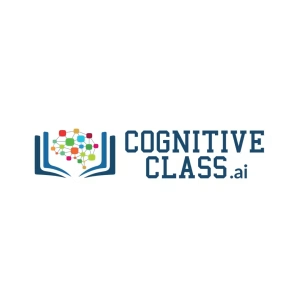Computer Vision
Computer Vision Courses and Certifications
Computer Vision is at the forefront of technological advancement, enabling computers to interpret and act on visual data. From facial recognition systems to autonomous vehicles, Computer Vision applications are transforming industries worldwide. EdCroma’s Computer Vision courses offer a deep dive into this revolutionary field, providing you with the skills to develop intelligent systems capable of understanding images and videos.
Dive into Artificial Neural Network to understand deep learning and artificial intelligence.
Why Choose EdCroma’s Computer Vision Courses?
Our Computer Vision courses online provide you with hands-on experience and in-depth theoretical knowledge to master Computer Vision. Whether you are a beginner or an experienced professional, these courses are designed to help you build, train, and optimize computer vision models for real-world applications.
- Expert-Led Curriculum: Learn from experienced instructors who bring industry insights and real-world expertise to each topic.
- Flexible Learning Options: Our online Computer Vision training allows you to learn at your own pace, with flexible schedules to fit your lifestyle.
- Certification: Gain recognition with our Computer Vision certification programs, proving your expertise to employers and peers.
Explore API integration to enable seamless communication between applications.
Showing 1–12 of 21 results

ArmEducationX: Machine Learning at the Edge on Arm: A Practical Introduction
****This course will provide you with the hands-on experience you’ll need to create innovative machine learning applications using ubiquitous Arm-based microcontrollers.

AWS: Introduction to Machine Learning on AWS
This course is intended for software developers and engineers taking their first steps with the AWS services that do much of heavy lifting of Machine Learning for you.

Build a Style Finder using Llama, Gen AI & Computer Vision
Build an AI-powered style finder using Llama, Generative AI, and Computer Vision techniques. Learn how to create a system that can analyze and match styles based on images and user preferences.

Classifying Cats & Dogs with HOG and SVM
Understand how to classify images of cats and dogs using Histogram of Oriented Gradients (HOG) features and Support Vector Machines (SVM). Learn the basics of image classification and machine learning.

Computer Vision for Beginners with OpenCV and Python
Master computer vision basics with OpenCV and Python. Learn how to process images, detect objects, and apply various vision techniques to solve problems using Python programming.

Computer Vision Fundamentals with Google Cloud
This course describes different types of computer vision use cases and then highlights different machine learning strategies for solving these use cases.

Google: Google AI for Anyone
A course for anyone to learn what AI is and how it works.

HarvardX: Deploying TinyML
Learn to program in TensorFlow Lite for microcontrollers so that you can write the code, and deploy your model to your very own tiny microcontroller. Before you know it, you’ll be implementing an entire TinyML application.

Human Portrait Drawing with U-Squared Net and PyTorch
Learn how to create human portrait drawings using U-Squared Net and PyTorch. Explore deep learning techniques for generating artistic portraits from images.

IBM: Computer Vision and Image Processing Fundamentals.
Learn about computer vision, one of the most exciting fields in machine learning. artificial intelligence and computer science.

Image Augmentation: A Practical Guide to Prevent Overfitting in Computer Vision
This talk starts with demos of the basic standard transforms using the albumentations Python package, and work up to some more advanced strategies like CutMix and mixup.

Image classification Using hugging face for Crypto Beans
Discover how to classify images using Hugging Face models for the crypto beans dataset. Learn to apply machine learning for image recognition and classification tasks in real-world applications.
Course Curriculum Overview
Our Computer Vision courses provide comprehensive coverage of key topics and tools necessary for a successful career in this domain:
- Introduction to Computer Vision: Understand the basics of Computer Vision, including its history, use cases, and fundamental concepts like image processing and object detection.
- Image Processing Fundamentals: Learn essential image processing techniques such as filtering, edge detection, transformations, and more, using libraries like OpenCV.
- Deep Learning for Computer Vision: Dive into convolutional neural networks (CNNs), the backbone of modern Computer Vision, and explore their architecture, implementation, and optimization for image classification, object detection, and more.
- Object Detection and Recognition: Master advanced techniques like YOLO (You Only Look Once), Faster R-CNN, and SSD (Single Shot MultiBox Detector) to detect and recognize objects in images and videos.
- Image Segmentation: Learn about segmentation algorithms such as U-Net and Mask R-CNN, crucial for applications like medical imaging and autonomous driving.
- Face Detection and Recognition: Study face detection techniques, facial landmark extraction, and real-world applications in security and user authentication.
- Video Analytics: Explore motion detection, activity recognition, and video summarization techniques used in surveillance, entertainment, and sports analytics.
- Generative Adversarial Networks (GANs): Gain a deep understanding of GANs, enabling you to generate new images, enhance image quality, and create synthetic data.
- Computer Vision in Industry: Understand how Computer Vision is used in healthcare, automotive, retail, and more. Study real-world case studies to gain practical insights.
Explore System Design to architect scalable and reliable software systems.
Practical Skills You’ll Gain
Upon completing our Best Computer Vision courses, you will be able to:
- Implement Image Processing: Master image manipulation and enhancement techniques for preprocessing and analysis.
- Build Neural Networks for Vision: Create, train, and optimize CNN models for image classification and object recognition tasks.
- Work with Popular Frameworks: Gain hands-on experience with TensorFlow, PyTorch, and OpenCV to develop and deploy Computer Vision solutions.
- Apply Object Detection: Use state-of-the-art algorithms for detecting and tracking objects in real-time applications.
- Analyze and Interpret Videos: Learn techniques for video processing, including frame extraction, motion tracking, and action recognition.
Learn Cloud Architecture to design cloud infrastructures that are efficient and scalable.
Who Should Enroll?
Our Computer Vision courses online are ideal for:
- AI and Data Science Enthusiasts: Develop your skills in image and video analysis for AI-driven applications.
- Software Engineers: Learn how to build intelligent systems and integrate vision capabilities into software applications.
- Researchers and Students: Deepen your understanding of Computer Vision and contribute to academic and industry research.
- Industry Professionals: Upskill with practical knowledge and tools that are in high demand across industries.
Explore Data Ethics to ensure responsible and legal data usage.
Free and Advanced Computer Vision Courses
Explore free Computer Vision courses to build your foundation, and progress to advanced Computer Vision certification programs that provide hands-on projects and deep learning-based solutions for complex visual problems.
Master Software Engineering to design and develop scalable software solutions.
How to Enroll
Visit EdCroma’s course catalog and browse our Best Computer Vision courses online. Enroll to gain in-demand skills and certifications that open the doors to new career opportunities in the rapidly growing field of Computer Vision.
Learn Reporting tools to generate meaningful insights from data.
Conclusion
EdCroma’s Computer Vision courses with certificates equip you with the essential skills and practical experience needed to develop innovative solutions using Computer Vision technology. Join us to advance your career and lead the transformation in how machines interpret visual data.
Explore Network fundamentals to build and manage effective communication systems.
